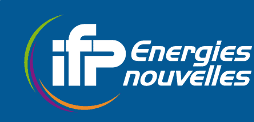Continuously Adaptive PI Control of Wave Energy Converters under Irregular Sea-State Conditions
Résumé
The main objective in hydrodynamic control of wave energy converters (WECs) is the maximisation, for a broad range of sea states, of the energy captured from the waves. Latching control, model predictive control and " PID " control are examples of implementable strategies surveyed in the literature. " PID " control, while suboptimal, has the merit of being simple, requiring only straightforward calculations and can be considered a standard solution for WECs with a four-quadrant power takeoff system (PTO), in particular in its " PI " variant. Adaptive PI control has been already discussed in the literature, usually using a gain-scheduling approach, with optimal gains precomputed offline for a representative set of sea states and applied as a function of estimated sea state conditions. In most literature, only average online estimations of sea states have been proposed, with time windows of several minutes. Such intermittent (or switching) adaptive control laws are clearly suboptimal in terms of energy recovery, since the control gains are not continuously updated whereas the sea state is continuously time-varying. In this paper we present a continuously adaptive PI control strategy, which takes into account (non-ideal) PTO efficiency. The problem of optimising the gains of the PI controller is converted into a convex optimisation problem, thus guaranteeing that a unique and optimal solution can be found offline. The gains of the PI controller are continuously adapted online, on a wave-to-wave basis, based on a real-time estimate of the dominant wave frequency of the wave force, which is in turn estimated from (normally) available WEC measurements. Validation is performed on a case study based on a lab-scale point-absorber WEC. Simulation results show that the proposed adaptive control scheme can recover more energy than a fixed-gain PI controller even in a sea state with constant spectral characteristics. Furthermore, in a changing sea state, it outperforms switching gain-scheduled PI control where the gains are updated from time to time based on an evaluation of the current sea conditions. Though some preliminary wave basin tests have already given encouraging results, further experiments are needed to precisely quantify its energy harvesting potential. Moreover, further research is needed to include WEC motion or actuator constraints in the optimisation procedure.
Origine : Fichiers produits par l'(les) auteur(s)
Loading...
